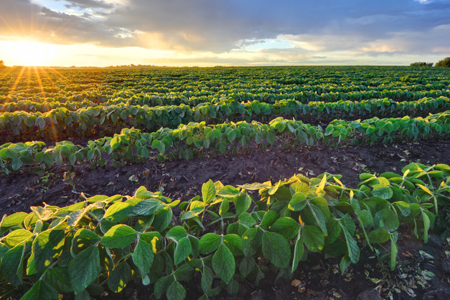Cargill tempts Aussie farmers to tap soybean rally
Category: Oilseeds
 (AgriMoney) – For any sceptics of the power of high prices to stimulate crop production, Australia is providing another example, with record soybean values sparking an attempt to turn the country into a force in the oilseed.
(AgriMoney) – For any sceptics of the power of high prices to stimulate crop production, Australia is providing another example, with record soybean values sparking an attempt to turn the country into a force in the oilseed.
Cargill, the US-based agribusiness, has opened a drive to encourage Australian farmers to improve on the less than 40,000 hectares of the oilseed they currently grow, leaving the nation reliant largely on imports, which reached 560,000 tonnes last year, for soymeal supplies.
The group’s Melbourne-based AWB business is offering growers a support package including a Aus$10-per-hectare rebate on – non-genetically modified- seed and some production insurance in a drive to gain domestic supplies to feed its three mills, one of which has a vegetable oils refining plant attached.
And the hopes of the programme succeeding rest in part on the elevated prices of soybeans, for which Chicago’s benchmark November lot Wednesday set a contract closing high of $17.53 a bushel, besides the benefits of adding another option to growers’ choice for crop rotation.
“Soybean prices are very high at the moment. That has not always been the case,” AWB spokesman Peter McBride told Agrimoney.com.
Market changes
A move by Australian growers into soybeans would represent the latest in a series of shifts which are changing the crop production and trade map, with Brazil expected by a margin to take over leadership from the US of world soybean exports in 2012-13, as farmers raise sowings to cash in on the price rally.
Ukraine has near-tripled corn exports in 2011-12 leaped to gain third place among exporters, behind the US and Argentina.
Argentina itself, the seventh-ranked barley exporter three years ago is set to be the biggest in 2012-13, with farmers switching from wheat in the face of export curbs which have limited their ability to tap strong international prices.
‘Creatures of habit’
Australia’s growing culture itself has traditionally been “pretty much founded on wheat”, Mr McBride said.
“And like most of us, farmers are creatures of habit. They like to grow what they know because that is what they have always done it.”
However, Australian growers too have shown the power of prices in encouraging growers to break with tradition.
The country, which until the 1990s had produced less than 100,000 tonnes of canola, the rapeseed variant, now harvests more than 3m tonnes, turning into a major exporter.




